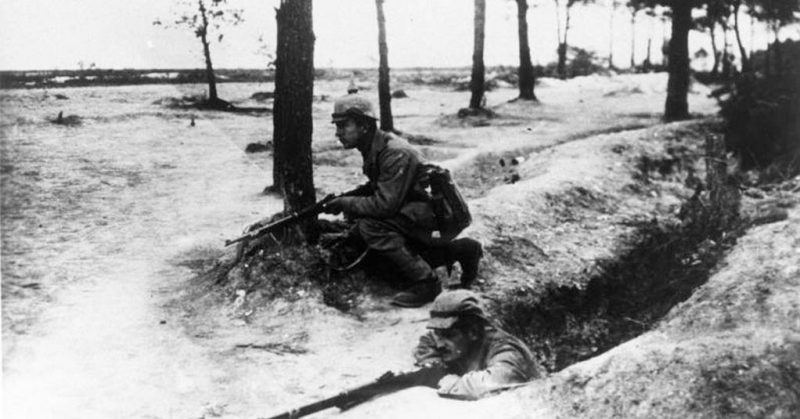Robert Lichte was a medical officer in the German army during World War I. He took a series of photographs that give a glimpse into life in the German trenches. In all, he took nine albums worth of photographs in the trenches and operating rooms on the other side of enemy lines.
Marius Moneth, 33, is a Ph.D. student in Düsseldorf at the Heinrich Heine University who obtained the photos. He feels the albums are a “historical treasure” as they show a unique aspect of the war from a German soldier’s viewpoint.
He said that the collection is special. It is eight photo albums and an album of postcards. Moneth believes that the doctor created each photo album for a different family member.
Not only did Lichte capture life in the trenches and the destruction caused by the war, he shared his own experiences. Included in the photos is one of Lichte and his medical team operating on a patient – a rare artifact since photographers were not allowed in the operating room. Moneth believes that the photo was staged.
The photograph is the first time Moneth has seen a picture of a medical procedure during WWI out of all the photos in his large collection of photographs from the war.
Another picture in the collection shows a German ammunition camp in Lille after it exploded on January 11, 1916, at 3:30 am. 134 people were killed in the explosion, including 104 civilians. Another 290 people were injured.
By examining postcards in the collection, Moneth was able to determine Lichte’s identity. He was also able to determine that Lichte survived the war. In the war, Lichte worked his way up from corporal to the non-commissioned medical officer in the 1st Company of the Infantry Regiment of Sparr No. 16 which was deployed on the 3rd West Front.
Lichte was stationed at major sites of the war like Reuve Chapelle and Verdun. He received the Iron Cross II for his actions in those battles. The Iron Cross was embedded in one of the photo albums.
Moneth is working on taking the nine albums of Lichte’s photographs and postcards and turning them into an annotated photo book available in German and in English.
He started a Kickstarter campaign to raise funds for his project. With the funds raised, he will be able to digitize the photos and postcards and then translating them along with his research.
Moneth hopes to be able to bring these unique photographs to a larger audience and help English readers get a glimpse into the lives of the people who fought against their great-grandfathers, Mail Online reported.
In order to reach as many people as possible, he is planning options to reach people of all budgets, including an e-book.
